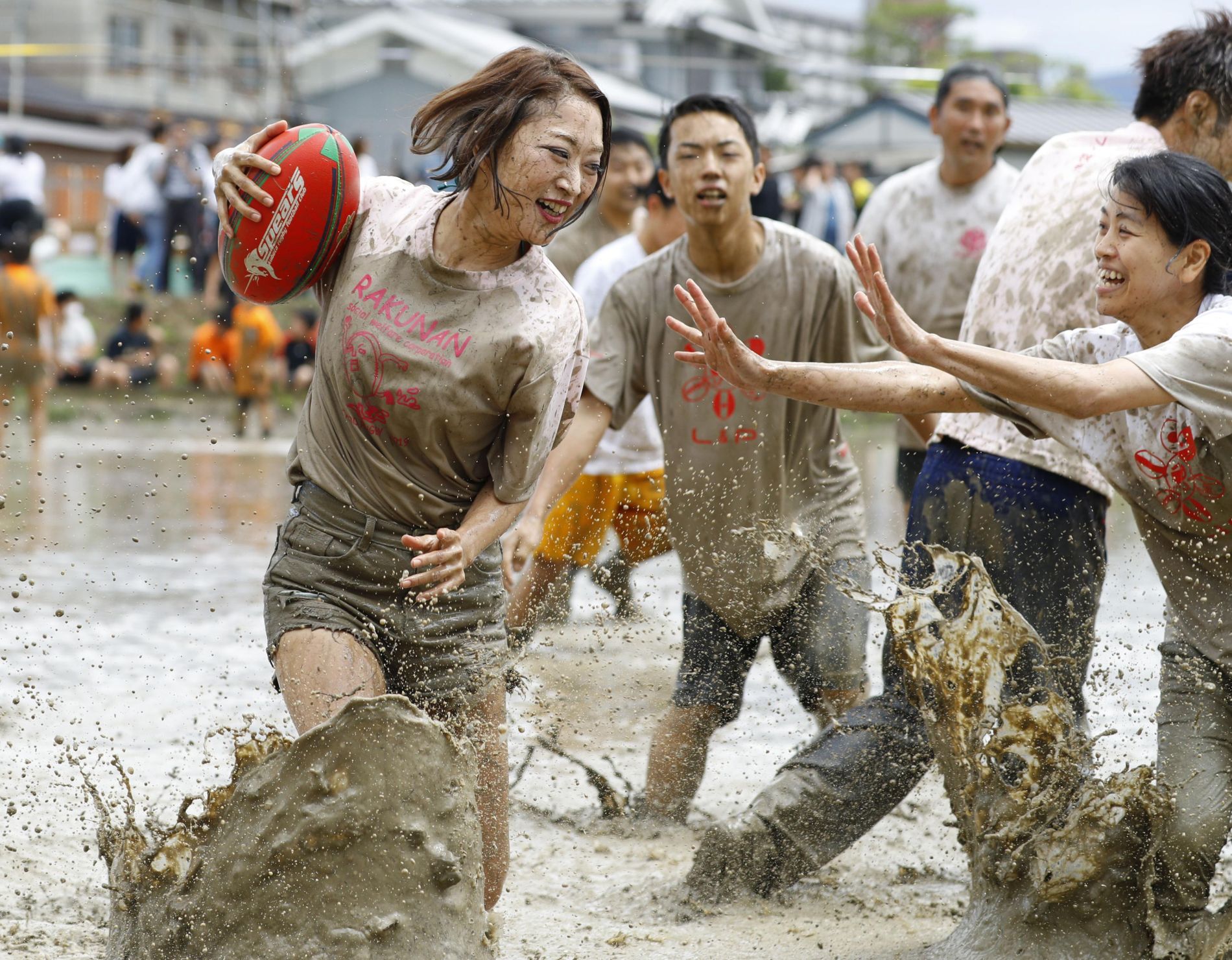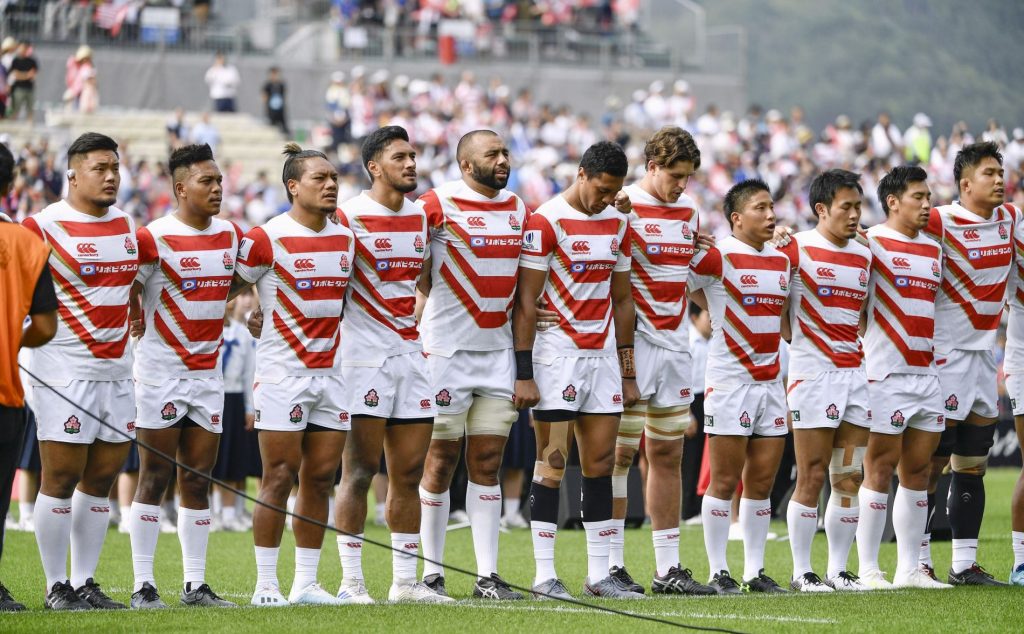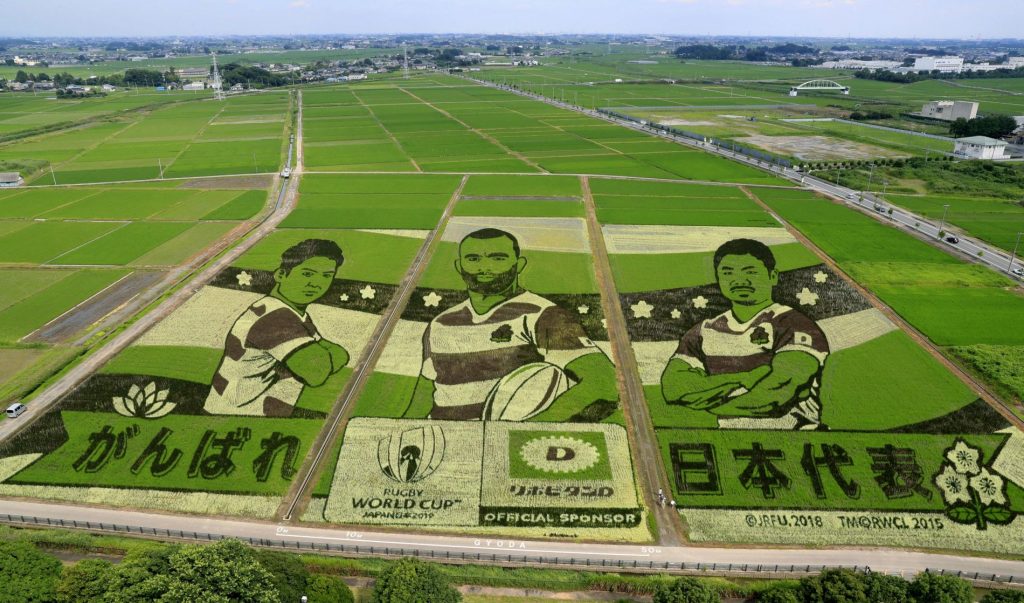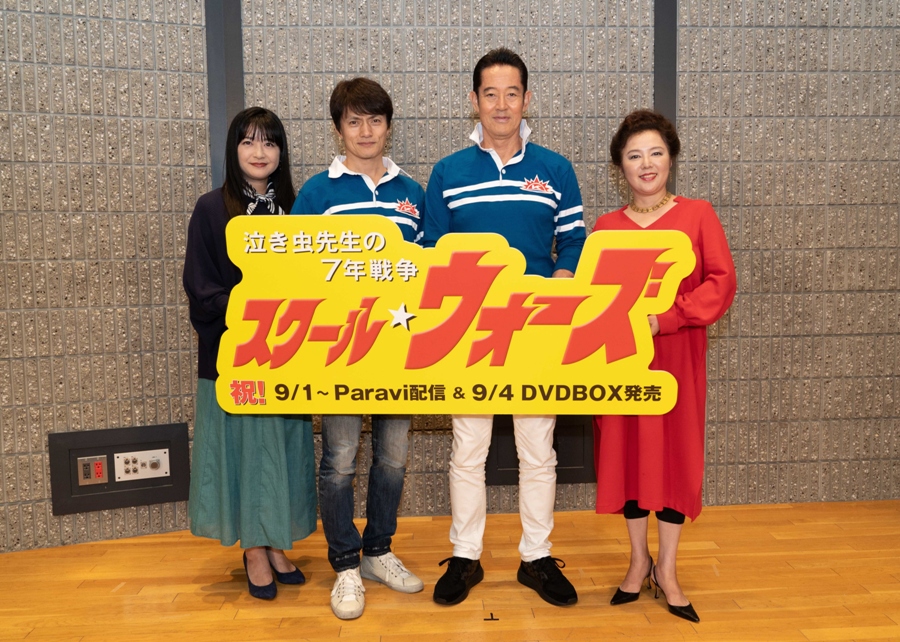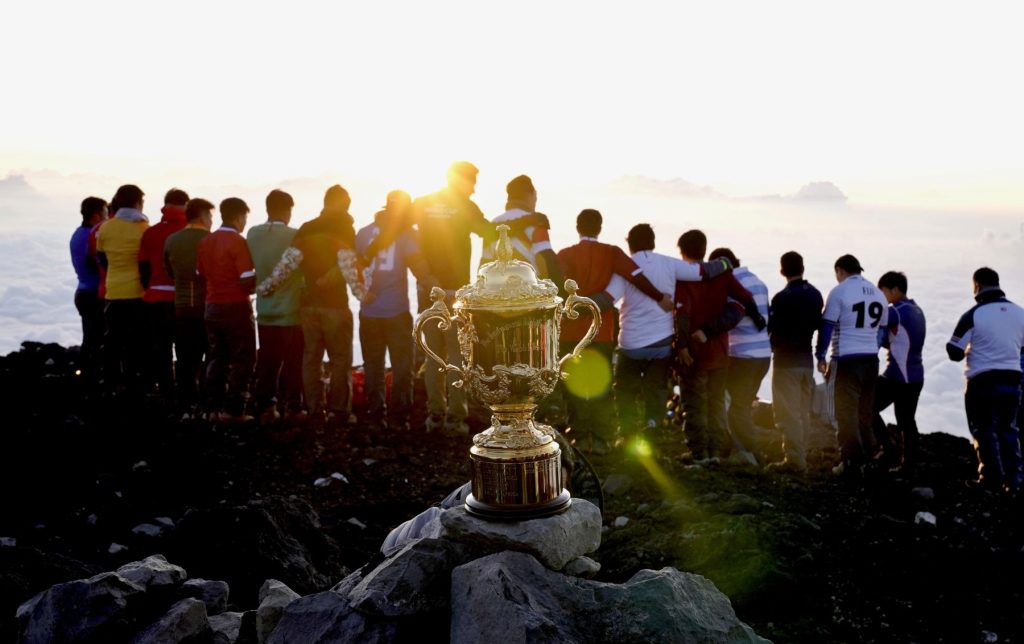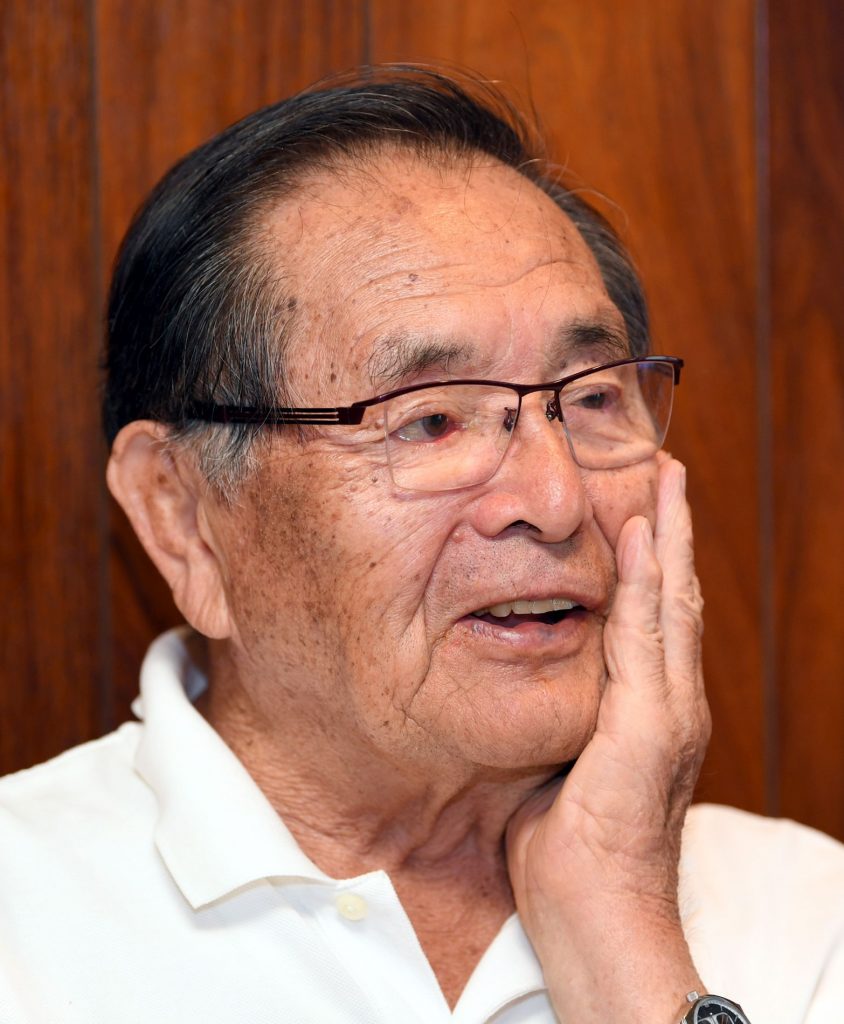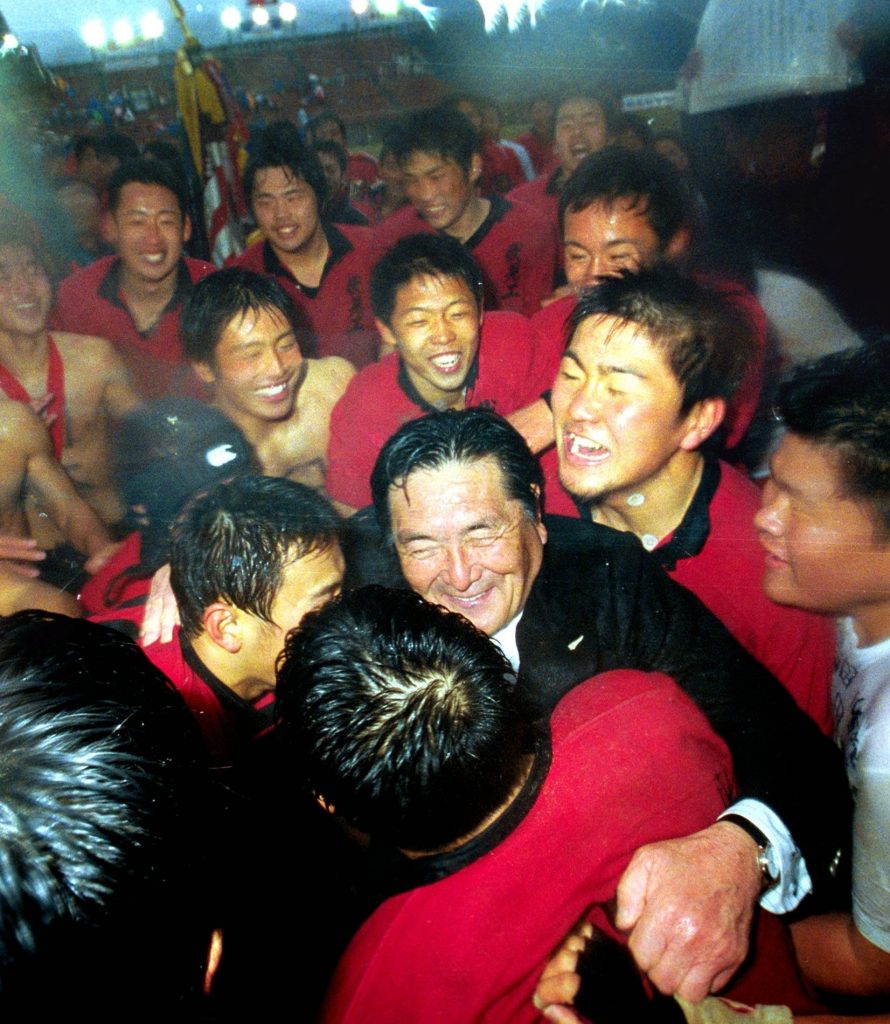What is Japan’s “national sport”? It depends on what is meant by “national,” or if we’re talking about spectators or participants, amateur or professional.
Without making any distinction, tourist propaganda will usually insist that the national sport of Japan is the ancient form of wrestling known throughout the world as sumo. For sure, the Shinto rituals performed before and after the bone-crushing bouts — not to mention the meaty specimens of Japanese manhood donning traditional loincloths and samurai-esque topknots — evoke a sporting image that only the nation of Japan could ever get away with.
Going by numbers, both spectators and practitioners, it is baseball that really occupies the mantle of Japan’s national sport. Practically speaking, pro and amateur baseball is the “unofficial national sport” of Japan.
Next to baseball, recent years have seen a massive upsurge in Association football (soccer). But what about “real footy” good old rugby union?
Rugby’s Place Among Japanese Fans
The diehard fan might be sad to learn that rugby is usually relegated to “other” in Japanese sports rankings. This is surprising given rugby’s comparatively long history in the country. The first recorded rugby game in Japan took place in 1866, but I will save the history lesson for another article.
It is also surprising considering Japan has a relatively healthy corporate rugby competition which has been attracting international superstars into its ranks for lucrative sabbaticals or alternative careers for some years now. Japan even has its own professional Super Rugby club, the Sun Wolves, although, sadly, they will be committing franchise hara-kiri at the end of next season. Collegiate national champs are broadcast live on television, as are the national high school championships.
Its popularity comes in ebbs and flows, but rugby is not really considered a major sport in Japan. How can this be?
Yes, the Rugby World Cup is Coming to Japan
Any rugby fan who has been in Japan for the last 12 months might have wondered if the Rugby World Cup (RWC), the first time ever to be held in Asia, is going ahead here at all, given the distinct lack of hype to date. Finally, one month out, rugby is starting to grab a few more headlines, albeit still not as many as the 2020 Tokyo Olympic Games.
In a recent (June 2019) national survey on sports by Japan’s reputable Central Research Services, Inc., rugby is not even listed in “professional sports.” Nevertheless, the survey found that 37.2% of Japanese are “looking forward to the RWC.”
This total is offset by 32.1% of the entire population who don’t even know what the RWC is, let alone that the tournament is going ahead in Japan.
Incidentally, the same survey reveals that of 20 sporting events scheduled for the 2020 Olympics, rugby (sevens) comes in at a rather unflattering 19th place for sports Japanese are looking forward to watching. Some solace can be taken by the fact that rugby features one place above the last ranked sport, the noble Japanese martial art of karate, which is debuting as an official event in 2020!
At risk of bogging the reader down in too many facts and figures, what I found interesting in the survey was that, of the 67.9% of punters who do “know” about the RWC, the majority (80%) are men between the ages of 40 and 60.
‘School Wars’ Remembered as Rugby Fever Heats Up
Although not Japanese, I too fall right in the middle of this group, and I reckon I know why we middle-aged males in Japan are more zealous than most to savor the rugger drama that awaits. Like me, I suspect that most of these keen rugby aficionados have never actually played the sport at any serious level, but we are drawn to it like moths to the light because of an intoxicating nostalgic yearning.
If I were a betting man, I would wager that rugby fever is on the verge of pushing mercury through the top of the thermometer soon, thanks to fond memories of a beloved television drama. School Wars featured on Tokyo Broadcasting Service for 26 episodes from 1984 to 1985.
A second series was made in 1990, and a feature film was produced in 2004. I first came to Japan as a high school exchange student in 1987, and basically learned to speak Japanese from the endless reruns on the telly. Even now, I quiver when I hear the highly emotive Japanese cover of Bonnie Tyler’s “Holding Out for A Hero,” the show’s mega hit theme song.
The Legacy of Yoshiharu Yamaguchi
The plot is set in the 1970s and is based on the true story of legendary rugby coach, Yoshiharu Yamaguchi. A Japanese national rep, he played his last game against England’s Under-23 side in 1973 at Twickenham. From flanker, his next position was schoolteacher at a rather low decile school in Fushimi, Kyoto, not too far from where I live now, as it happens.
Stuck between a ruck and a hard place he focused on changing the fortunes of the school. And somehow, beyond all plausible odds, he managed to make fine young men of the delinquents under his charge through the doctrine of rugby.
He is portrayed in the drama by the charismatic Yamagami Shoei. As the story goes, Yamagami is headhunted by the despairing principal to take on mission impossible and coach the rugby team. Predictably, the problematic students are as resistant to any whiff of discipline as superbugs to penicillin, and the violence enacted in the school grounds makes an All Black vs. Springbok match seem like little more than a pillow fight at a sleepover.
While Yamagami was disheartened and on the verge of giving up, his wife plucks the right strings in his heart and persuades him to give it another crack. Thanks to his wife’s wise counsel, he has an epiphany and firms up his resolve to bring sunshine to Fushimi First Industrial High School or die trying.
Slowly gaining the support of hitherto browbeaten staff members, Yamagami sets about strategically recruiting the most felonious and vicious students into the rugby fold. Like breaking in wild stallions, each episode draws the viewer into the trials and tribulations of the gradual turnaround.
There is vicious bullying tempered by intense male bonding, mandatory feminine touches to quell the unbridled testosterone-fueled brutality, love-fueled slaps across the face (by the coach), rebellious teenage punches to the choppers (against the coach), the sad death by brain tumor of Isoppu, the team’s sickly rugby fanatic, adolescent love stories, and lots and lots of tears. Blood and sweat are a given.
Actually, coach Yamagami cried the most, hence the series subtitle “Crybaby Coach’s Seven-Year War!” It has it all.
And the team’s fortunes on the field? After finally starting to look like a team, they lose their first match 112-0. Like pouring gasoline on a fire, this ignited and united their spirits into one. They were on a mission now. A quest that meant each member had a common goal to be the best they possibly could as players and people, not for themselves, but for the team.
The team becomes their gang of choice, and all previous cavorting with gangsters and other unsavory thugs is relegated to a distant embarrassing memory. One arrow can be snapped, but 15 will not yield, and yield they did not. They finally go on to win the 1976 Kyoto Prefecture High School Rugby Tournament. True story.
The 2019 Tournament: Bring on the Heroics
You can’t script this kind of sentimental claptrap, but it really happened. School Wars was much more than a tale about some bad eggs learning how to play rugby. It was a chronicle of hope, honor, friendship, overcoming personal demons, and defeating all odds at times of seemingly insurmountable adversity.
It was a narrative of the vicissitudes of life. It was a statement of the potency of “all for one, and one for all.”
I saw it again recently and it sure has dated. The mere thought of a coach slapping a student across the face now, for example, would land him/her in a mountain of strife. The times have changed, but the legend lives on in Japan.
Now, can you imagine what it must have felt like for Japanese rugby fans when Japan was thrashed by the All Blacks 145-17 at RWC 1995, and then stunned the Springboks at RWC 2015? Look at their faces on YouTube at the sound of the final hooter. Those tears of joy are straight from School Wars.
Bring on the heroics at RWC 2019. This tournament promises to be the start of a new era in Japanese rugby.
Author: Alex Bennett

